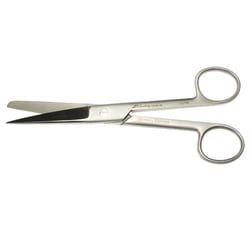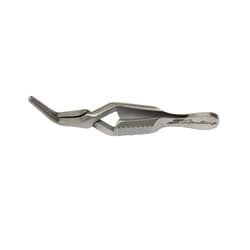10-001-231
Stoelting™ Singley (Heart Holding) Forceps
Manufacturer: Stoelting™
Select a Size
| Pack Size | SKU | Availability | Price |
|---|---|---|---|
| Each of 1 | 10-001-231-Each-of-1 | In Stock | ₹ 27,501.00 |
10-001-231 - Each of 1
In Stock
Quantity
1
Base Price: ₹ 27,501.00
GST (18%): ₹ 4,950.18
Total Price: ₹ 32,451.18
For Use With (Application)
Neuroscience
Length (English)
6 in.
Description
- Micro tweezers come in a wide variety of tip sizes, shapes, and materials
- To choose the best tweezers, keep in mind the size of the animal and/or tissue
- The type of cleaning and sterilization required may also affect the chosen material
- If autoclaving is required or users are working under a microscope on a mouse, the thinnest-tipped forceps made of stainless steel, titanium, Dumostar, INOX, and Dumoxel are good choices
- Carbon steel instruments may not be the best choice for use where there is constant exposure to water
- If not handled properly, carbon steel is likely to rust if exposed to water for a length of time
- Though not recommended, flash flame decontamination could be used on carbon steel tweezers because this material is less likely to be damaged by high heat
- The extreme heat from flash flame decontamination changes the molecular structure of most material adversely
- High heat softens metal and shortens the useful life of instruments
- Consider another method of decontamination where lower heat levels can be applied to keep your instruments useful for many more years.


